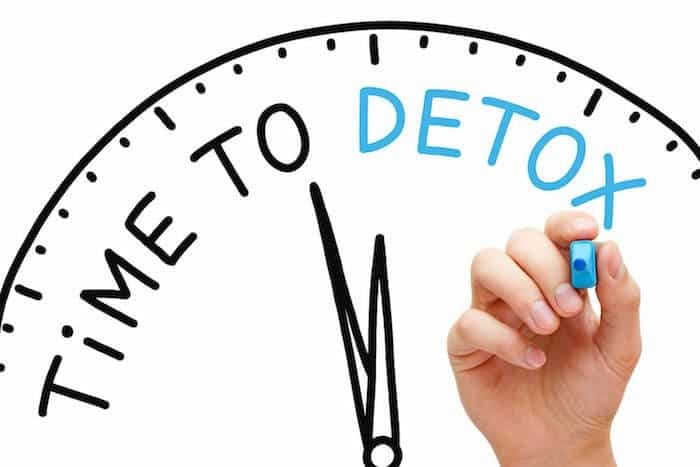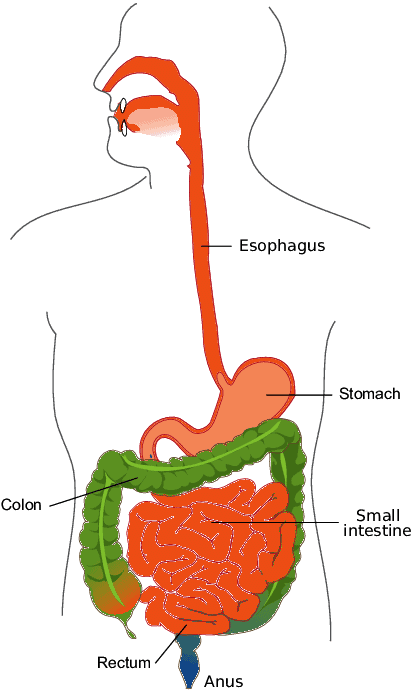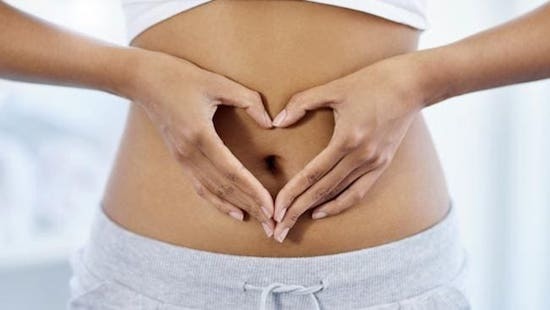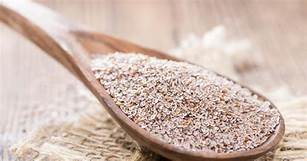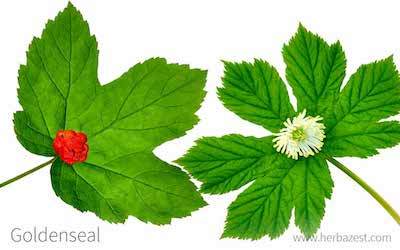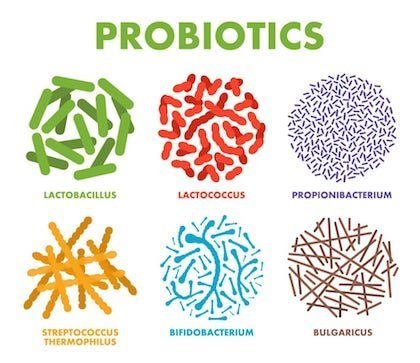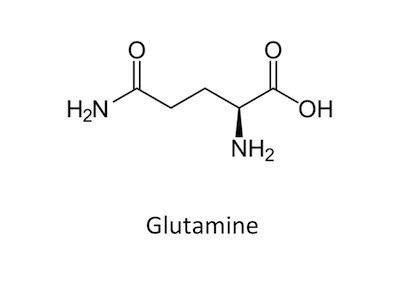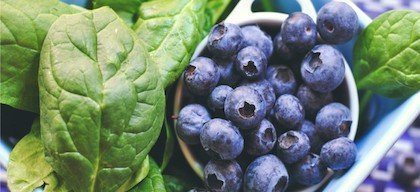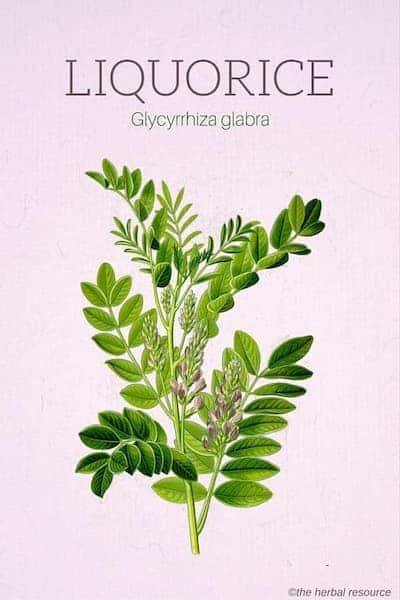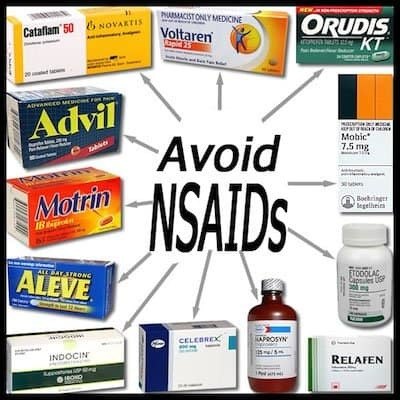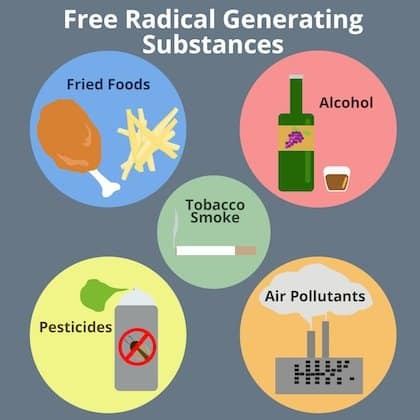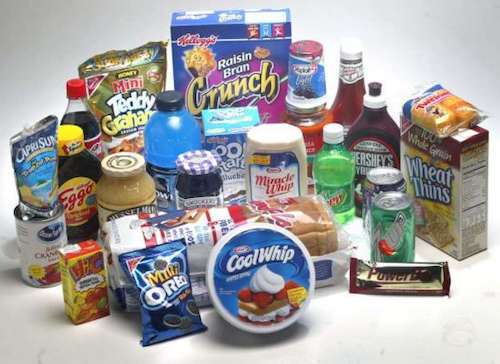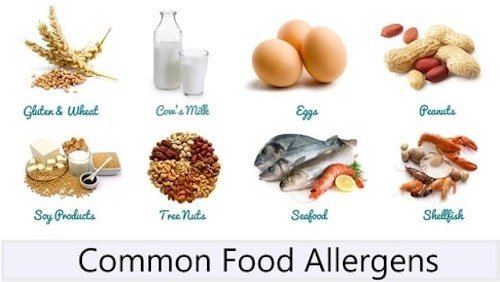Detox Your Gut — Two Weeks To Greater Health!
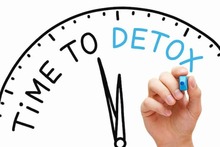
One excellent reason to detox your gut is that overall health is impossible without a healthy gut. This is especially true as it relates to the immune system and chronic inflammation. The problem is that too many of us suffer from an unhealthy gut due to the prevalence of chemical pollution and poor food choices. Learn how to detox your gut.
Before we examine how and why to detox your gut, let’s get a sense of what it is. It’s interesting that the word “guttural” refers to a sound emanating from the throat, because that’s very near where the “gut” begins.
“Gut” is shorthand for gastrointestinal tract, or GI tract, and it is a series of hollow organs joined in a long, twisting tube from the mouth to the anus. These hollow organs are the mouth, esophagus, stomach, small intestine, large intestine and anus. (Incidentally, the liver, pancreas and gallbladder are the solid organs of the digestive system.)
Clearly, the gut matters because there’s no other way you could consume and absorb the nutrition and calories required to sustain life without it. Which then brings us to a common problem: In November 2018, the American Journal of Gastroenterology reported that:
- Digestive diseases are responsible for more than 100 million ambulatory care visits annually in the U.S.; and
- A national survey they conducted that was completed by 71,812 individuals, 61% reported having had at least one GI symptom in the past week, broken down as follows:
-
- Heartburn/reflux (30.9%)
- Abdominal pain (24.8%)
- Bloating (20.6%)
- Diarrhea (20.2%)
- Constipation (19.7%)
Given these stats, it’s likely that you have experienced GI discomfort. That’s why it matters that you explore possible reasons behind GI distress and toxicity, and what to do to make your gut healthy.
Why You Need To Detox Your Gut
We have a symbiotic relationship with many trillions of one-cell bacteria that are both in us and on us, and collectively make up our microbiome. The most populous and impactful part of that microbiome is our gut. It’s the host to both beneficial and harmful bacteria, and they battle for dominance.
When you eat unhealthy junk foods, such as sugar-heavy and processed drinks and foods, you feed the harmful gut bacteria. When they digest junk food, these bacteria release toxic chemical by-products, called endotoxins, that add to whatever preexisting toxic load your body may bear from breathing polluted air, and absorbing chemicals and pesticides from drinking water, food, household cleaners, carpet, and many other sources of toxins.
Remember that the gut is basically a long tube coiled up in the abdomen with the mouth at one end and the anus at the other. In effect, this makes it outside the body, as it’s open at both ends — the mouth and the anus. Thus, unlike the rest of the body, the gut is a non-sterile environment full of bacteria. Those bacteria continuously produce a lot of neurotoxic and other poisonous metabolites (an intermediate end product of metabolism), such as D-lactic acid and ammonia.
If all those endotoxins damaging your gut wasn’t enough of a health challenge, there’s also the potential of a damaged gut that “leaks”. Leaky gut happens when the intestinal walls become too permeable and allow bacteria and toxins to leak through the intestinal wall.
Harvard Health reports that leaky gut is present in many chronic diseases, such as celiac disease, Crohn’s disease, and irritable bowel syndrome. Although there are not yet clinical studies in humans showing direct cause and effect, some studies indicate that leaky gut may be linked to other autoimmune diseases (lupus, type 1 diabetes, multiple sclerosis), chronic fatigue syndrome (ME/CFS), fibromyalgia, arthritis, allergies, asthma, acne, obesity and mental illness.
These endotoxins inflame your gut and undermine gut function; perhaps worse, they overwhelm the liver and cause indiscriminate damage throughout the body. When it comes to detoxification, if you don’t first clean up the gut, those gut endotoxins will make detoxifying all the other organs of elimination (such as your liver, kidneys and skin) much harder.
A useful analogy to underscore why it’s important to detox your gut first is a common sense approach to housecleaning. Initiating detox without first repairing your gut is like going through your home emptying all the dirt, waste and rubbish into a garbage bag, and then emptying all its contents into your garage, thereby compounding the difficulty of cleaning the garage. You don’t want to pass the toxic waste from your gut to other organs.
How To Detox Your Gut and Make It Healthy
This is a two-week program that begins with a week during which the aim is to destroy and excrete the harmful bacteria and toxins in your gut, followed by a week during which you “reseed” and repair your gut with beneficial bacteria, along with various herbs and compounds.
The final part of your gut detox is keep it healthy by avoiding, or limiting, nonsteroidal drugs, alcohol, high-fructose corn syrup and food allergens.
Let’s examine the specifics.
1. Minimize the harmful bacteria and toxins in your gut
For the first seven days, you will begin to detox your gut by first destroying harmful bacteria in your gut, and binding and excreting from your body those toxic chemicals released as harmful the bacteria dies off.
Psyllium Husk Powder
Psyllium husk powder — a soluble fiber derived from the seeds of Plantago ovata, an herb mainly grown in India — is a fiber that draws water into your intestines to help bulk and soften stool, making it easier to be excreted.
An additional benefit from consuming psyllium is its ability to nourish healthy colonies of probiotics (beneficial bacteria) given that it’s a prebiotic. A prebiotic, is a substance needed for growth or activity of healthy colonies of probiotics to grow in the gut.
During the first three to five days of the first week of your gut detox, add approximately one full tablespoon of psyllium husk fiber three times a day mixed with 8 oz of water. The fiber will help you get rid of some of the gut toxins by binding to them and in passing them from the body in your stool, as well as helping improve bowel movement frequency.
Goldenseal
Goldenseal (Hydrastis canadensis) is a medicinal herb that contains berberine, an alkaloid extracted from a variety of herbs, and commonly taken for diabetes, high levels of cholesterol or other fats (lipids) in the blood (hyperlipidemia, and high blood pressure.
Goldenseal is used for digestive disorders including stomach pain and swelling (gastritis), peptic ulcers, colitis, diarrhea, constipation, hemorrhoids and intestinal gas.
Although there is little scientific evidence that goldenseal kills gut toxins, per se, it has been shown to fight bacterial infections and has antifungal properties, including the inhibition of candida and the suppression of MRSA isolates, a type of staph bacteria that become resistant to many of the antibiotics used to treat ordinary staph infections.
The active compound in goldenseal responsible for these bacterial and fungal mitigating effects is berberine. According to the Milton S. Hershey Medical Center at Penn State University, berberine kills many types of bacteria and parasites in test tubes, and may activate white blood cells as well, enabling them to fight infections and bolster the immune system.
You may continue to take psyllium husk powder during this first seven-day period of your gut detox, but consume it either one hour before or after the goldenseal. Recommended dosages vary considerably, from 250 mg to 1 gram, three times daily, or higher. Consider starting with the dose recommended on the label of the goldenseal root powder supplement you use.
Garlic (Allium sativum)
Garlic’s strong odor and flavor are indicative of its very powerful health-promoting compounds. It helps to regulate the enzymes that assist with detoxification, and can help us bind and excrete heavy metals such as arsenic, lead and cadmium. One of garlic’s constituents, allicin, has been shown to increase liver enzymes and help to detoxify carcinogens.
Try to consume your garlic raw, as this provides the most benefit. If you cannot tolerate eating raw garlic, don’t cook it above 140°F, or you’ll kill the allicin content.
The effective daily dosage of raw garlic has not been determined, but 4 grams (about 2 cloves) are generally recommended for adults.
2. Repair your gut
To repair your gut, the focus during the next seven days, beginning on day eight, is to “reseed” your gut with beneficial bacteria, and help repair underlying issues associated with leaky gut, infection and inflammation.
Probiotics
After ten or more days of psyllium husk powder and goldenseal, the ratio of beneficial to harmful bacteria in your gut should be strongly in favor of the beneficial strains. You can begin to enhance the beneficial colony of bacteria by adding probiotics. Look for a high quality brand of probiotic that include ten or more multi-bacterial strains, with several species of Lactobacillus and Bifidobacterium. Take the dose suggested by your probiotic brand, but make sure that you separate it three times per day.
Glutamine
Glutamine, or L-glutamine, is a non-essential amino acid produced by the body and found in food as well. Glutamine can boost immune cell activity in the gut, help prevent infection and inflammation, and soothe intestinal tissue.
Again, use the supplement label’s guidance to determine dose, but like with probiotics, try to take glutamine three times a day, preferably with meals.
Quercetin
Quercetin is a flavonoid found in fruits and vegetables (found in high amounts in onions, kale and apples), and has unique biological properties that are thought to reduce chronic inflammation and improve immunity. It also has been shown to reduce intestinal permeability (aka, leaky gut). Quercetin does this because it can:
- Help stabilize mast cells (a promoter of intestinal permeability), thereby preventing the release of histamine and other chemicals from these cells.
- Enhance the “sealing” effect of the gut barrier function by connecting intestinal cells, thereby containing needed nutrients within the gut and preventing foreign substances out.
Refer to your product label’s suggestion for dose, and aim to consume the quercetin twice per day.
DGL (Licorice)
Deglycyrrhizinated licorice (DGL) is an herbal supplement commonly used in the treatment of gastric and duodenal ulcers. It’s made from licorice from which the glycyrrhizin has been removed. DGL is used to soothe gastrointestinal problems. In cases of food poisoning, stomach ulcers, and heartburn, licorice root extract can speed the repair of stomach lining and restore balance.
A June 2013 study found that glycyrrhizic acid can suppress the toxic bacteria H. pylori, and can prevent it from growing in the gut. DGL has also been shown to promote mucus activity. This extra mucus may act as a barrier to acid in the stomach and esophagus. This barrier can allow the damaged tissue to heal and prevent future occurrences of acid reflux.
An additional example of the power of licorice root to heal the digestive system’s damaged mucous membranes was underscored by another study where smokers experienced a 52% reduction in symptoms using licorice lozenges compared with 24% in those receiving a sugar-candy placebo.
Use the dose suggested on your product’s label.
3. Stop future damage
Now that you’ve cleared out many gut toxins and have begun to heal your gut, you must ensure that you prevent future damage to it. Do this by avoiding:
- Nonsteroidal anti-inflammatory drugs
- Excessive consumption of alcohol
- Consumption of high-fructose corn syrup
- Food allergies
NSAIDs
Nonsteroidal drugs are referred to as “NSAIDs”, including acetaminophen (not technically an NSAID, but often grouped with them. Studies show that NSAIDs produce gut damage and gut permeability within hours of ingestion. When taken regularly, NSAIDs do precisely the opposite of what you want, as they can increase the absorption of toxins, and decrease absorption of the healthy nutrients your body gets from food.
Alcohol
Drinking a beverage that contains five percent or more alcohol can make your gut leaky, and it will stay that way for more than three hours. When alcohol interacts with gut cells, it activates an enzyme that detoxifies the alcohol. Unfortunately, this process releases free radicals, but they can be neutralized by glutathione if there’s enough of it available in your system. Glutathione can get depleted by alcohol consumption; once that happens, the free radicals multiply and alcohol leaks into the body.
High-Fructose Corn Syrup (HFCS)
Before HFCS became a ubiquitous ingredient in so many drinks and processed foods, our livers got overly fat due to excess alcohol consumption, and this so-called fatty liver disease was primarily due to alcohol consumption. Nowadays, we need to distinguish between fat livers caused by alcohol versus diet, which lead to a relatively new term, nonalcoholic fatty liver disease (NAFLD).
According to the Mayo Clinic, NAFLD affects an estimated 80 million to 100 million Americans, or approximately between 24 and 30% of the population. HFCS was a big contributor to this surprisingly high number, as it was introduced to the American diet just a few years before a spike in NAFLD was observed.
Along with its well-known disruptive effects on blood-sugar regulation, HFCS raises endotoxin levels. Serious research now connects consumption of HFCS soft drinks and NAFLD.
Make sure to avoid consuming HFCS to protect your gut health. It’s unnecessary to avoid fruit, which has fructose, because the level of fructose in food is much lower than that found in soft drinks, and fructose in food is more slowly absorbed into the bloodstream.
Food Allergens
Any kind of allergic response can cause gut-wall inflammation and leaky gut, increasing your risk for illness. These eight common foods account for 90% of allergic reactions:
- Milk
- Eggs
- Peanuts
- Tree nuts (such as almonds, cashews, walnuts)
- Fish (such as bass, cod, flounder)
- Shellfish (such as crab, lobster, shrimp)
- Soy
- Wheat
If you have allergies, examine whether you regularly consume any of those allergenic foods.
Your Takeaway
In your effort to detox your gut, remember these four things:
- A large percentage of people face impaired gut function due to chemical pollutants and non-nutritious, harmful foods and drinks.
- A gut in poor health will affect other organ systems, such as the liver, as well as systemic health issues, such as compromised immunity and chronic inflammation.
- To detox your gut, first kill off and excrete harmful bacteria and toxins in the gut, and then heal the gut, per the herbs and compounds recommended above.
- Once your gut is healed, endeavor to keep it that way by eliminating or largely avoiding NSAIDs, alcohol, HFCS and allergenic foods.
Last Updated on February 7, 2024 by Joe Garma

